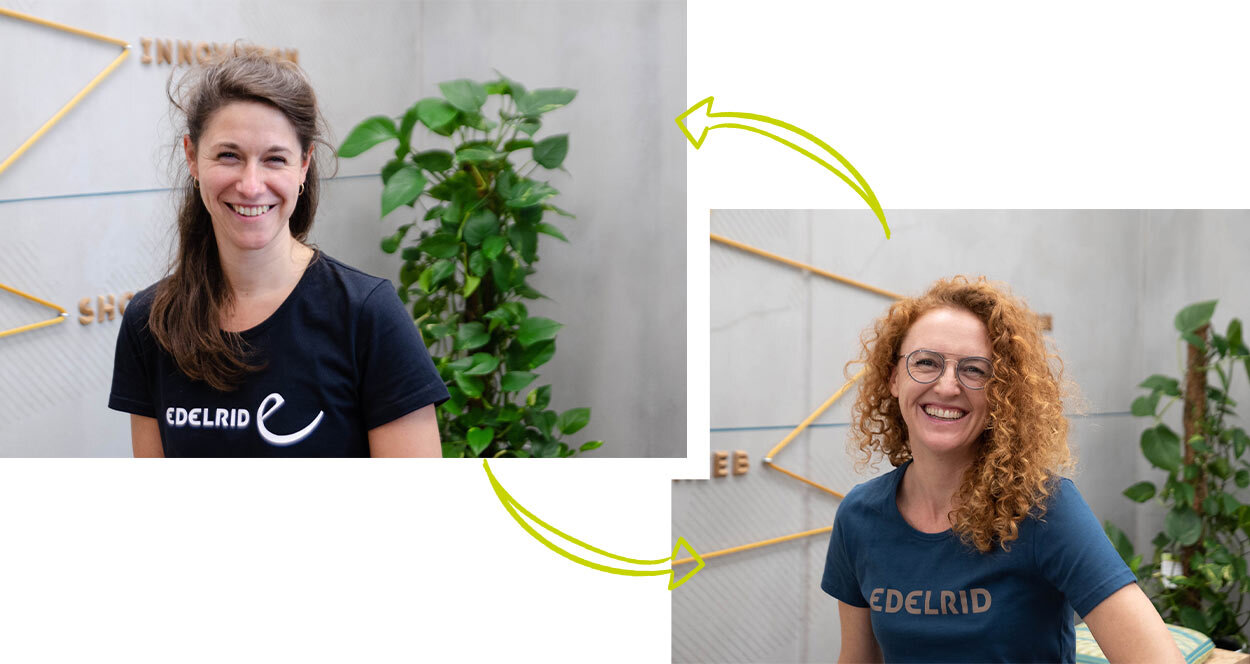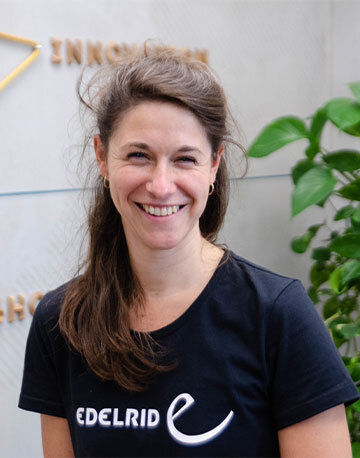Sarah, you’re EDELRID’s CSR manager, so does that mean green blood flows through your veins?
Well, I’m not sure about that, but I do sometimes see the world through slightly greener-tinted spectacles than other people do [laughs].
How do you become a CSR manager? Is sustainability very important to you personally?
I was always fascinated by societal issues, which is why I decided to do my master’s in development research. Back then, in contrast to today, there wasn’t a single university course on CSR or sustainable busi- ness practices. I wrote my dissertation at bluesign® and so my career choice was quite an obvious one.
And how do you like the path you’ve chosen?
In my role as a CSR manager, I enjoy helping the company to develop its social responsibility approach. Ultimately, this is a process that doesn’t happen overnight. And that’s something I find quite exciting.
In your opinion, can companies put social responsibility into practice?
The first step is to understand what the company’s processes involve. In our case, this means asking where do our resources come from, what happens during production and what’s the impact on the environment and society? As soon as you make your own processes transparent and question them, you see where you can make a difference.
And what did EDELRID do as a result?
For example, during rope production, we realised that the scraps and waste produced were valuable raw materials. We started from there and investigated ways of recycling them. Now we recycle the waste to make new ropes, or brand-new products that incorporate the waste, like our backpacks with straps made of old ropes. And these products are very popular.
And apart from during our production, what other impact can we make?
We ensure that our suppliers also apply social and ecological standards. As a company that sells clothing too, we comply with the Fair Wear standard. In terms of our purchasing behaviour, we want to ensure that members of our supply chain also work under fair conditions.
Sometimes, public perception is that sustainability’s just a buzzword and it’s all greenwashing. What do you think?
That’s exactly what makes it so difficult sometimes. If companies merely pay lip service to sustainability, then any endeavours are bound to back- fire. Our customers make deliberate purchasing decisions in favour
of or against certain brands. Which is why it’s so crucial to us that we’re transparent. And even if this slows down processes occasionally, it’s the honest route to take in the end.
It’s a similar story with carbon offsets. Do you think that tree planting is just a way of getting rid of a guilty conscience?
I don’t want to dismiss offsetting carbon footprints out of hand. It still creates awareness of the problem. And sometimes it’s the only quick step you can take. However, I don’t believe that planting trees works if it’s still business as usual otherwise. In my opinion, compensating for emissions must go hand in hand with reducing them at the same time. We need to ask where emissions and resources can be saved during the production or shipping process.
What’s the cost to businesses of engaging in sustainable practices?
At the moment, sustainable business is unfortunately quite expensive for companies. But I think the price of not doing business sustainably is the highest. In future, we’ll no longer be able to afford not to do so. It’s true that developments and changing processes are time consuming, complex and expensive to start with. However, in view of the scarcity of resources, unstable supply chains and climate change, any step in this direction is a must.
Now, that sounds like green blood really does run through your veins. If you had three ways of making the world a better place, what would you do?
I’d like to go climbing without having to travel too far by car and produ- cing so much waste. I dream of fuel that isn’t finite and doesn’t cause waste. And then I’d like companies and consumers to live and breathe CSR and sustainability to a much greater degree so that it becomes part and parcel of our society.
Do you have a tip for other companies and climbers?
I’d recommend that companies encourage their staff to get involved – after all, they know the processes the best and what to improve. I’d tell climbers to use their equipment for as long as possible. For example, they could shorten their ropes instead of throwing them away, but only if they still meet safety standards. And they could discard single compo- nents instead of whole products. For example, by replacing the slings in their quickdraws as long as the carabiners are still in good condition. I think that using objects for a long time is one of the best ways of redu- cing consumption and living a more sustainable lifestyle.
Thanks very much for talking to us Sarah and good luck with all your projects.


